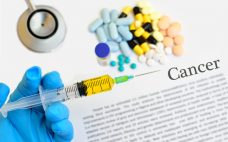Following Novartis and Gilead‚Äôs success, others are ‚Äúscrambling to build up their T-Cell capabilities,‚ÄĚ say venture capitalists. We look at where Big Pharma stands in this blossoming sector. Big Pharma firms will be looking at strategies to enter the chimeric antigen receptor (CAR) T-cell space, if they have not already, spurred on by the approvals in 2017 of¬†Kymriah (tisagenlecleucel) and Yescarta (axicabtagene ciloleucel) . This was the view of commentators and analysts at Phacilitate in Miami, Florida last month. Anna…

Therapeutic Class
VBAs and marketing campaign to aid RNAi Onpattro ramp up, says Alnylam
Around 200 patients have so far been treated with Onpattro (patisiran), the first approved RNA interference (RNAi) drug, bringing in $12.5 million for Alnylam. In August 2018, the US Food and Drug Administration (FDA) and the European Commission (EC) approved Alnylam Pharmaceuticals‚Äô Onpattro for the treatment of the polyneuropathy of hereditary transthyretin-mediated (hATTR) amyloidosis in adults. The approvals heralded in a new class of drugs: small interfering ribonucleic acid (siRNA) treatments. Onpattro works by silencing a portion of RNA involved…
Roche looks to delivery device to keep Lucentis biosimilars at bay
Roche says its Port Delivery System will keep Lucentis (ranibizumab) competitive against upcoming biosimilar competition. Lucentis pulled in CHF 1.66 billion ($1.66 billion) in US sales for Roche in 2018, up 18% on the year before. The drug is marketed in Europe by fellow Swiss firm Novartis. The firm attributed the increase to the ‚Äúongoing rollout of prefilled syringes and sales increases in all approved indications.‚ÄĚ The monoclonal antibody, approved for eye conditions including neovascular (‚Äėwet‚Äô) age-related macular degeneration, macular…
GSK boosts oncology pipeline through Merck and Tesaro deals
The acquisition of Tesaro and a codevelopment deal with Merck KGaA has helped double the size of GlaxoSmithKline‚Äôs clinical oncology pipeline from eight to 16. Earlier this week, GSK formed an alliance with Germany‚Äôs Merck to codevelop and commercialize a bifunctional fusion protein immunotherapy intended to treat multiple cancers. Merck has received an upfront payment of ‚ā¨300 million ($340 million) from GSK and could receive a further ‚ā¨500 million in development milestone payments. The candidate, M7824 (proposed International Nonproprietary Name…
Beyond approvals: Top 10 cell and gene therapy milestones
M&A, global partnerships and product approvals have all propelled regenerative medicines into the public discourse. We present the breakthroughs of 2018 and look at where the sector will head in 2019. The ‚Äúnew frontier of medicine‚ÄĚ arrived in the US in 2017 through the approval of chimeric antigen receptor (CAR) T-Cell therapies Kymriah (tisagenlecleucel) and Yescarta (axicabtagene ciloleucel), and gene therapy Luxturna (voretigene neparvovec). But it was last year, 2018, which delivered the true potential of this burgeoning sector into…
Pfizer looks to oncology biosimilars to break US market
Biosimilar uptake in the US has been stifled in the inflammation and immunology (I&I) space but Pfizer expects a different dynamic for oncology products. Pfizer‚Äôs biosimilar business had a robust year in 2018. The firm reported a 41% operational growth in the sector over the year prior, with total sales of $769 million (‚ā¨674 million). The company attributed much of this growth to sales of Inflectra, its version of J&J‚Äôs Remicade (infliximab), which pulled in $642 million worldwide including $259…
Janssen enters $440m retinal gene therapy partnership
J&J has licensed a clinical stage inherited retinal disease portfolio from MeiraGTx in a deal that could be worth $440 million (‚ā¨385 million). Johnson & Johnson‚Äôs Janssen division has paid $100 million upfront to MeiraGTx, a London-UK based clinical stage company, to access and codevelop the firm‚Äôs gene therapy programs. Development and sales milestones for MeiraGTx‚Äôs could net the firm a further $340 million. Under terms of the deal, the two firms aim to develop, manufacture and commercialize several candidates…
Hitachi brings cell therapy biz to Europe through $86m apceth buy
Hitachi Chemical will add two production plants and 600m2 of cleanroom through the acquisition of German cell therapy manufacturing firm apceth Biopharma. The deal, expected to close in April, sees Japanese firm Hitachi acquire all shares of apceth for JPY 9.4 billion ($86 million) from Santo Holding GmbH, FCP Biotech Holding GmbH and other individual shareholders. apceth has around 120 employees operating from its site in Munich, Germany. The site includes two GMP/BSL2 cell and gene therapy production facilities, including…
Finding closure: Lowering the costs of cell and gene therapies
Fully closed and automated platforms are key to reducing the current high costs of cell and gene therapy manufacturing, say industry experts. Cell and gene therapies (CGTs) have come a long way over the past two years, resulting in two chimeric antigen receptor (CAR) T-cell therapies ‚Äď Kymriah and Yescarta ‚Äď and the novel gene therapy Luxturna reaching commercialization. But now these therapies have proved themselves, the major talking point among delegates at the Phacilitate conference in Miami, Florida last…
Merck and MIT look to continuous cell-based vaccines in NIIMBL project
An 18-month project partners Merck & Co. with vendor Repligen and academia to develop approaches for continuous cell-culture based vaccine manufacturing. The program, entitled ‚ÄėThe Continuous Cell Culture for Viral Vaccines‚Äô is being led by the Massachusetts Institute of Technology (MIT), will bring together Big Biopharma firm Merck & Co. (known as MSD outside North America), bioprocessing vendor Repligen, Massachusetts Life Sciences Center, and the University of Massachusetts Medical School. It is one of 22 projects recently announced by the…










